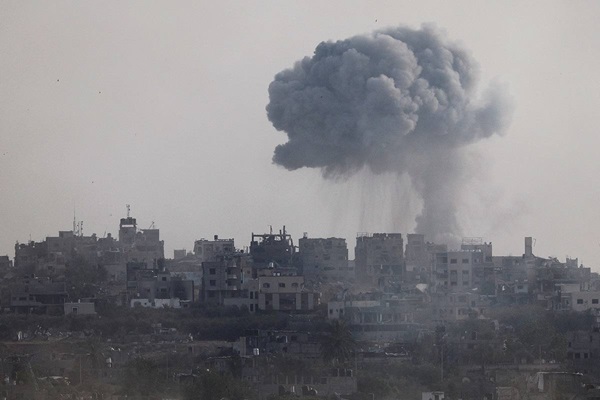Israeli Prime Minister Benjamin Netanyahu has announced that he will present a US-brokered proposal for a ceasefire with Hezbollah in Lebanon to his government for approval, potentially as early as Tuesday evening.
In a televised address, Netanyahu stated that he would submit “a ceasefire outline” to his ministers “this evening”. He did not specify the duration of the truce, explaining that “the length of the ceasefire depends on developments in Lebanon”.
“If Hezbollah violates the agreement and attempts to rearm, we will respond with force,” he warned.
The United States, a key ally of Israel, has taken the lead in ceasefire negotiations for Lebanon, with support from France.
“In full coordination with the United States, we are maintaining unrestricted military freedom of action,” Netanyahu said, referring to what Israel describes as a seven-front conflict involving Gaza, the occupied West Bank, Yemen, Iraq, Syria, Lebanon, and Iran.
Even as Netanyahu spoke about the ceasefire, the Israeli military carried out multiple strikes on central Beirut, while the army reported that approximately 15 projectiles had entered Israeli airspace from Lebanon.
The conflict in Lebanon escalated following nearly a year of limited cross-border skirmishes initiated by Hezbollah, which claimed it was acting in solidarity with Hamas after the latter’s attack on Israel on 7 October 2023, an event that also triggered the war in Gaza.
According to Lebanon’s health ministry, at least 3,823 people have been killed in Lebanon since October 2023, the majority of these casualties occurring since September. On the Israeli side, hostilities have resulted in the deaths of at least 82 soldiers and 47 civilians.
Netanyahu asserted that the ceasefire would enable Israel to focus on “the Iranian threat” while intensifying its military efforts against Hamas in Gaza.
“With Hezbollah out of the equation, Hamas will be isolated,” he said. “We will ramp up pressure on Hamas to achieve our sacred mission of securing the release of our hostages.”
During last year’s Hamas attack, 251 hostages were taken, with 97 still held in Gaza, including 34 who have been declared deceased by the Israeli army.
Opposition and Divided Opinion
Far-right National Security Minister Itamar Ben Gvir, part of Israel’s security cabinet, called the ceasefire proposal “a historic mistake”, vowing to oppose it.
“This is not a ceasefire but a return to the flawed concept of ‘silence for silence’, which has failed us before,” he wrote on X. “The agreement does not fulfil the objectives of this war — ensuring the safe return of northern residents.”
Israel reports that over 60,000 people have been displaced from their homes in the north for more than a year due to the threat of Hezbollah rocket attacks.
Opposition leader and former prime minister Yair Lapid criticised Netanyahu, stating, “Under Netanyahu’s leadership, the greatest disaster in our history has unfolded. No agreement with Hezbollah will erase the negligence.”
He urged the government to prioritise a hostage deal, saying, “We urgently need to bring home those citizens who were abandoned.”
David Azoulay, mayor of Metula, Israel’s northernmost town, condemned the proposed deal, accusing Netanyahu of making unilateral decisions. Speaking to Channel 12, he said, “I will not participate in a meeting that serves as a backdrop for decisions already made by one person. I refuse to be an accessory to Netanyahu’s political theatre.”
A flash poll by Channel 12 revealed that 37% of Israelis support the ceasefire proposal, while 32% oppose it, and 31% remain undecided.



